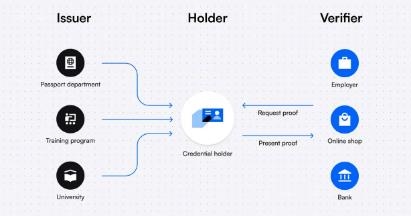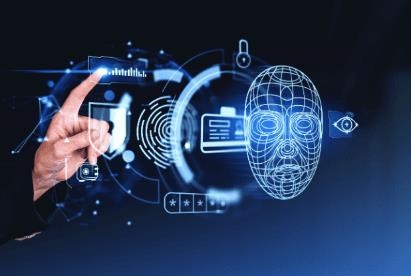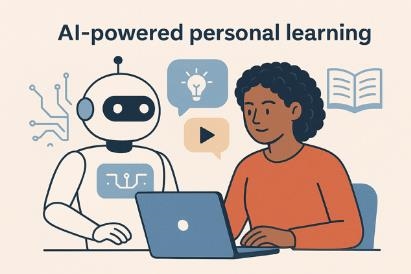Decentralized identification (DI) is transforming the way people run their digital lives in a big way by letting them take back control of personal data that used to be stored in weak, centralized systems. People may control their identities with digital wallets that are safe because they use cryptography. This lets users share their credentials with other people while yet retaining their privacy and freedom. Instead of one identity that fits everyone, think of a digital passport that proves you’re over 18 without giving away your exact birthdate or a job title without giving away your full résumé. Blockchain and zero-knowledge proofs make this privacy by design.
DI is different since it doesn’t use centralized databases that hackers can easily get into. Instead, it reliably shares identification information across blockchain or other decentralized ledgers. Users act as holders who acquire verified credentials from trusted issuers and give verifiers cryptographic proof that they are validating data without giving away private information. This strategy makes it much less likely that someone will steal your identity or obtain your data illegally. AI techniques also improve fraud detection and dynamic access restriction, making identity management much safer and more flexible than prior systems.
People will benefit the most from the change since they will always be able to control and move their identity data, which is no longer stuck in distinct platform silos. They may choose exactly what to share and with whom, and they can also keep an eye on a clear, verifiable record of who has access to the data. DI is also highly useful for organizations and developers since it cuts costs and compliance difficulties by lowering their data storage roles and making it easier for services to check IDs without any complications.
Microsoft and other companies in the area say that DI is a key aspect of security solutions that will be used in the future. New ideas from companies like 1Kosmos are helping to fight fraud and keep track of credentials in ways that work incredibly effectively. GDPR, CPRA, and other standards throughout the world are getting harsher. DI’s privacy-first architecture makes it easier for businesses to follow the rules, which gives them an edge over their competitors.
Decentralized identity is more than simply a new technology; it shows us a future where digital freedom, trust, and safety all work together. You have full control over your online identity and can utilize it with confidence, privacy, and exact control. By accepting decentralized identification, you can get your digital identity back and make the digital world safer and fairer for everyone.
—
**Main Benefits of Decentralized Identity:
– **User Control & Self-Sovereignty:** People are in command of their own digital identities and don’t need anyone else’s support.
– **Better security and fraud prevention:** Cryptographic verification means you don’t have to trust central databases that are simple to hack, which considerably lowers the risk of theft.
– Privacy by Design: Personal data is significantly safer when it is only shared with certain people, when there are no centralized tracking systems, and when there are zero-knowledge proofs.
– **Portability and Interoperability:** You only need one identity to work on all platforms, so you don’t have to make a lot of accounts.
– **Less Risk for Businesses:** When companies keep less personal data on their own systems, they have fewer compliance problems and breaches have a less effect on them.
– A better experience for users: Authentication without passwords makes it easier for users to get in and out fast.
– **Regulatory Alignment:** Designs that put privacy first make it easier to fulfill global data protection laws like GDPR and CPRA.
– **Open Ecosystem for Developers:** Standardized protocols make it easy for diverse digital services to operate together and stimulate new ideas.
We lose more than just data when we give up control of our digital identity; we also lose trust and freedom. On the other side, decentralized identity promises a future where we can take back control of our online lives and everyone can be careful with their digital selves.




